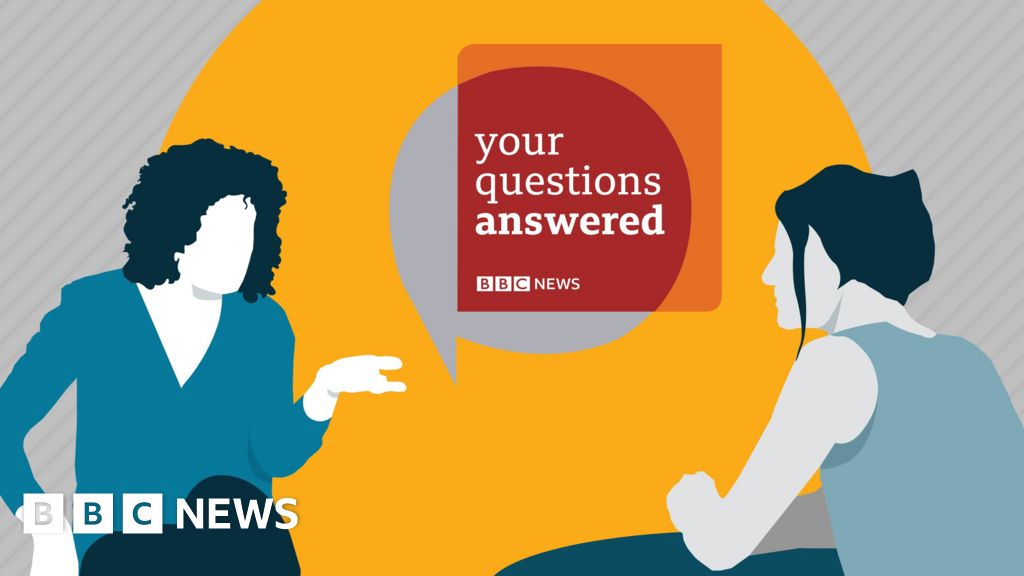

The chancellor has announced changes stamp duty, VAT, eating out and the furlough scheme.
So, how could you be affected?
Questions and answers
Latest questions
Your questions
Skip Latest questions-
My daughter bought a home last week and completes/moves on Thursday. Does the stamp duty change apply to her? from Jan Everden in West Malling, Kent
Yes it does, as long as she is buying in England or Northern Ireland. The stamp duty holiday started on Wednesday and lasts until 31 March 2021.
The date of completion, which is when you can move into your new home, not exchange, when signed contracts are handed over, is the relevant one for stamp duty purposes.
-
We are due to buy a £585,000 house. Will we save any money on stamp duty? from Rebecca Beauchamp

Kevin Peachey Personal finance reporter
Yes, you will not pay stamp duty for the portion under £500,000. The portion between £500,001 and £585,000 will still be taxed at 5%.
So, overall the bill will be cheaper under this temporary policy, as it will for many people buying in more expensive areas.
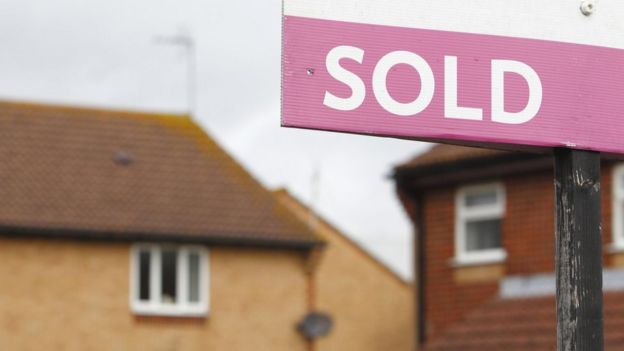
The idea is to get the whole housing chain moving. But questions have been raised because buyers of even the most expensive properties will benefit.
-
How will the stamp duty changes affect people who are buying property through shared ownership? from Roopa Rajapaksha in Wandsworth, London

Kevin Peachey Personal finance reporter
Anyone buying through shared ownership effectively buys the property in stages, and often pays stamp duty in stages.
However, you do have the option to pay stamp duty in full up-front, based on the market value of the property, so in your case that would benefit from the temporary stamp duty holiday.
It is a choice for you.
-
My husband’s company would get £1,000 for keeping him on until the end of January. What happens after that? from Dianne Hill
-
How can we tell which restaurants will take part in the "50% off" scheme? from Ray Clements in Northamptonshire
The government plans to put a list of participating restaurants, cafes and pubs on its website.
Businesses are also likely to let customers know via their websites, social media and email.
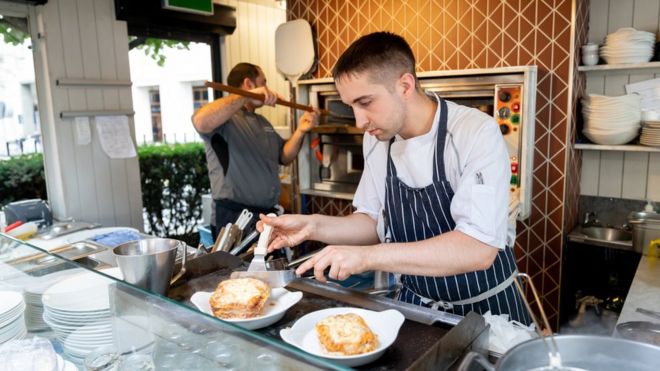
Those that want to take part in the scheme can register from Monday 13 July.
-
I have already paid for my holiday in a hotel. Can I expect money back as VAT has been reduced? from Ian Brown in Lochgelly
Providers will probably not refund people who have already booked and paid, as the price was agreed at the time of sale.
Accountants say there may be some flexibility, but that will depend on the fine print of the policy, which we have yet to see.
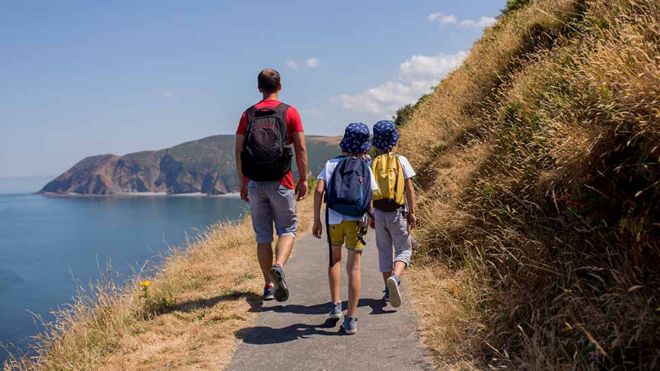
-
Will my business - furnished self-catering holiday homes - benefit from the temporary VAT reduction? from Marjorie Haynes

Kevin Peachey Personal finance reporter
Some small businesses pay VAT at a flat rate as part of schemes to reduce administration.
In guidance from HM Revenue and Customs, it says that some of these will be reduced to reflect the new temporary lower rate elsewhere.
Support bubbles
Your questions
Skip Support bubbles-
When will people be allowed to resume physical contact with a loved one in a bubble scenario? I miss my boyfriend of 18 months as we live apart. from Sue in Chester
If you and your boyfriend both live alone and in England, the good news is that from 13 June, you can form a support bubble, which means that you can spend as much as time as you want in each other’s company, inside or outside a house. You don’t have to keep a 2m distance from one another, and you can stay overnight at each other’s house.
If you are living alone, and your partner is in a shared household (or vice versa), matters get complicated. You can still form a support bubble with your boyfriend but it will also be with his household, and it would be the only bubble allowed to that household.
What this means is that if one of your boyfriend’s housemates has a partner who is - like you - living elsewhere and alone, that couple will be prevented from meeting up.
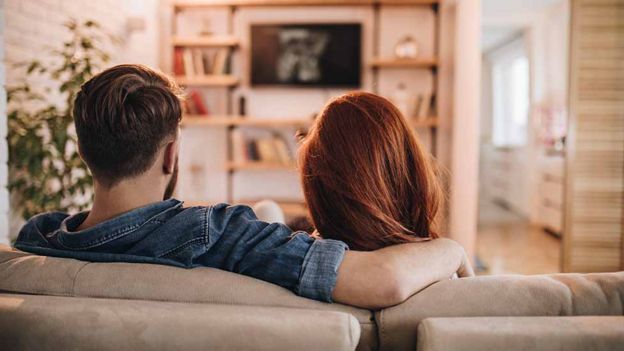
Support bubbles are for the benefit of people who are living alone (or alone with children). If both you and your boyfriend are living in shared households, you are not allowed to form one and you are restricted to meeting outdoors and at a distance of 2m from each other.
You cannot form a support bubble with your boyfriend if he lives in Scotland or Wales, although Northern Ireland has announced that it is also introducing support bubbles from 13 June..
-
Can I have my grandson overnight? I am a single grandparent living on the ground floor in my own house, however I have a lodger who lives on the second floor. from Teresa
As a single grandparent, you will have the right to form a “support bubble” with your grandson and his family.
Under the government’s new guidance, from 13 June your grandson would be able to stay at your home, including overnight, and would not need to keep a 2m distance.
However, the complicating factor here is your lodger. Are you maintaining a 2m distance from each other, and are you using separate rooms and facilities? If the answer is yes, then there should be no problem.
On the other hand, if you have been using the same kitchen, living room and bathroom, and eating from the same crockery and cutlery as your lodger, then you are both effectively part of the same household, and you do not qualify to be part of a support bubble.
-
If I have been on the vulnerable list, when can I have people in my house to sleep over and can I go to family to sleep over at their house? From Karen Dowling in Birmingham
If you’re clinically vulnerable and shielding, and you're living alone (or you're a single parent with children under 18), then from 6 July in England and Northern Ireland, you will be able to form a “support bubble” with one other household.
This means you’ll be able to spend time in their house, and they’ll be able to spend time in yours, and you won't need to keep a distance from one another. It also means you can sleep over at each other’s home.
People who are vulnerable and shielding in Scotland and Wales are not yet allowed to form a support bubble and are advised to keep a social distance of 2m from other people wherever possible. From 1 August in England, shielding is to be suspended.
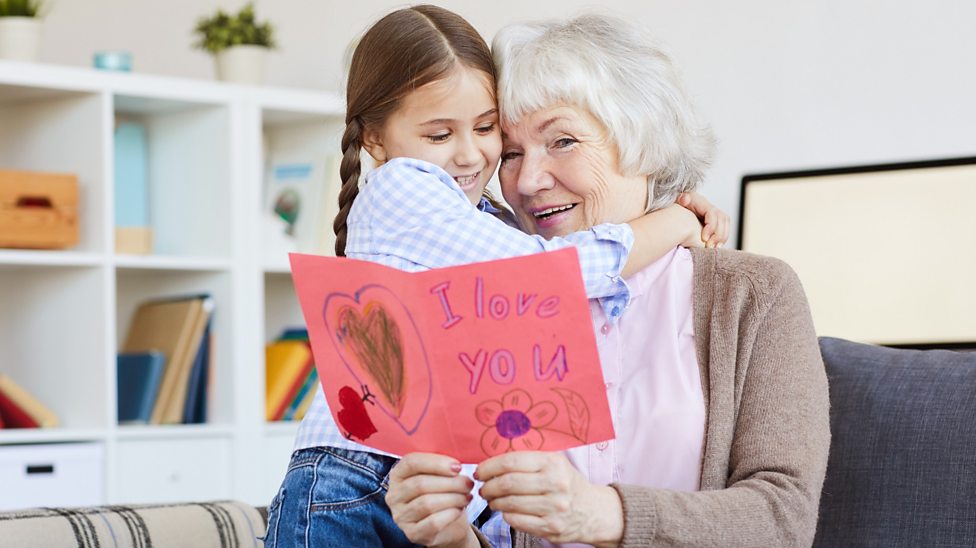
All about coronavirus
Your questions
Skip All about coronavirus-
What is the coronavirus? from Caitlin in Leeds Most asked

BBC News Health team
Coronavirus is an infectious disease discovered in China in December 2019. Its more precise name is Covid-19.
There are actually hundreds of coronaviruses - most of which circulate among animals, including pigs, camels, bats and cats. But there are a few - such as Covid-19 - that infect humans.
Some coronaviruses cause mild to moderate illnesses, such as the common cold. Covid-19 is among those that can lead to more serious illnesses such as pneumonia.
Most infected people will have only mild symptoms - perhaps a fever, aching limbs a cough, and loss of taste or smell - and will recover without special treatment.
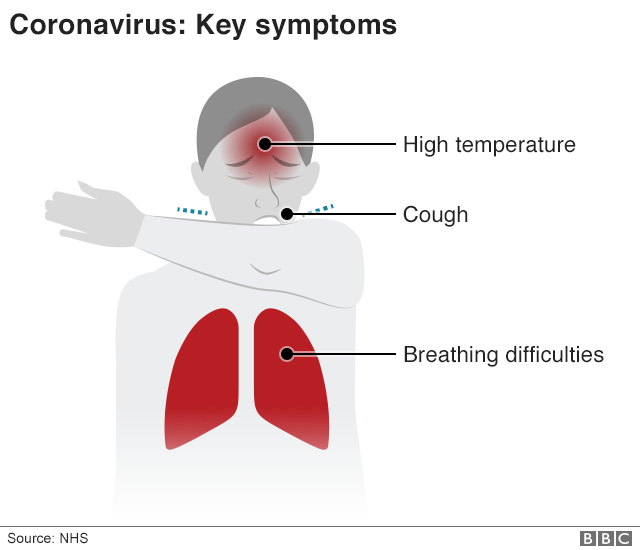
But some older people, and those with underlying medical problems such as heart disease, diabetes, or cancer are at greater risk of becoming seriously unwell.
The NHS has more about symptoms.
-
Once you've had coronavirus will you then be immune? from Denise Mitchell in Bicester Most asked

BBC News Health team
When people recover from an infection, their body is left with some memory of how to fight it should they encounter it again. This immunity is not always long-lasting or totally efficient, however, and can decrease over time.
It is unclear, though, if people who have recovered from coronavirus will be able to get it again.
University of Oxford’s Prof Sarah Gilbert, who is working on creating a vaccine for Covid-19, says that it “probably is likely” that an infected person will be able to be reinfected in the future.
The UK government views antibody tests - which can show if a person has had Covid-19 - as central to its plans to end the current lockdown and allow people to return to work.
But the World Health Organization has said that there is no evidence that antibody tests can show that a person has immunity or is protected against reinfection.
-
What is the incubation period for the coronavirus? from Gillian Gibs

Michelle Roberts Health online editor
Scientists have said that the “incubation period” - the time between catching the virus and starting to show symptoms - is five days on average. However, some people can have symptoms earlier or much later than this.
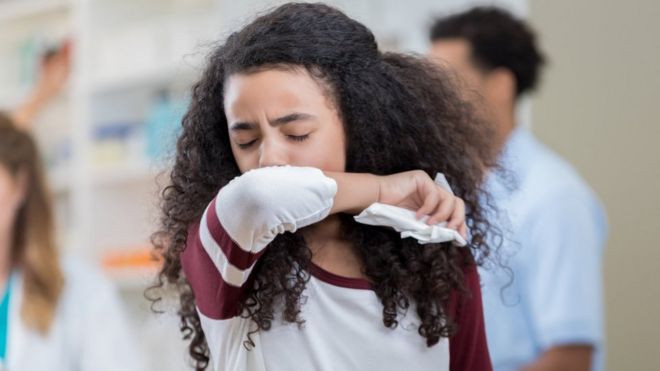
The World Health Organization advises that the incubation period can last up to 14 days. But some researchers say it may be up to 24 days.
Knowing and understanding the incubation period is very important. It allows doctors and health authorities to introduce more effective ways to control the spread of the virus.
-
Is coronavirus more infectious than flu? from Merry Fitzpatrick in Sydney

Michelle Roberts Health online editor
Both viruses are highly contagious.
On average, it's thought people with the coronavirus infect two to three other people, while those with flu pass it on to about one other person.
There are simple steps you can take to stop the spread of flu and coronavirus:
- Wash your hands often with soap and water
If you have returned from holiday abroad and have to self-isolate in quarantine, you will not automatically qualify for Statutory Sick Pay (SSP), so it's possible you might have to make arrangements with your employer if you cannot work from home.
- Catch coughs and sneezes in a tissue and then put it in the bin
-
How long are you ill for? from Nita in Maidstone

BBC News Health team
For four out of five people Covid-19 will be a mild disease, a bit like flu.
Symptoms include [fever, a dry cough or loss of smell and taste(https://www.bbc.co.uk/news/health-51048366)
If the virus gets well established in the lungs it can cause breathing difficulties and pneumonia. About one in seven people may need hospital treatment.
Recovery time will depend on how sick you became in the first place. Some people will shrug off the illness quickly, but for others the path to full health could take months, and leave lasting problems.
-
Asymptomatic people are regarded as "silent spreaders" - what proportion of the population are they estimated to be and how do you find them? From Val Holland in Worcester
This is the subject of ongoing research, but little is still known about how many people are carrying the virus without knowing it.
Different studies currently suggest a huge range of possibilities for how many "silent spreaders" there are - ranging from 5% to 80% of cases. That was the conclusion of an analysis by Prof Carl Heneghan of the University of Oxford and colleagues who looked at 21 research projects.
The upshot, they said, was that "there is not a single reliable study to determine the number of asymptomatics". And they said that if the screening for Covid-19 is only carried out on people with symptoms - which has been the main focus of UK testing policy - then cases will be missed, "perhaps a lot of cases".
Some scientists believe that asymptomatic cases may be the main force driving the pandemic, and there have been calls for increased testing to establish how many "silent carriers" there may be.
-
Why are diabetics not included in the clinically extremely vulnerable patients, and will the list be refreshed? from Derek Roberts in Hornchurch, Essex

Michelle Roberts Health online editor
Diabetics are not included in the list of people at highest risk who should shield at home. However, some may be advised to shield if they suffer from a combination of factors, such as heart disease or obesity, as well as diabetes - which put them at much higher risk of complications.
A third of virus deaths in England from 1 March to 11 May were linked to diabetes, but research suggests the threat for those under 40 with type 1 (insulin-dependent) or type 2 diabetes is still very low.
Age remains the strongest risk factor for becoming severely or fatally ill with coronavirus, say experts.
Diabetes UK advises anyone with diabetes to try their best to manage their condition carefully, keeping their blood sugar in range as much as possible, as well as following social distancing measures.
-
How dangerous is coronavirus for people with asthma? from Lesley-Anne in Falkirk

Michelle Roberts Health online editor
Asthma UK's advice is to keep taking your daily preventer inhaler (usually brown) as prescribed. This will help cut the risk of an asthma attack being triggered by any respiratory virus, including coronavirus.
Carry your blue reliever inhaler with you every day, in case you feel your asthma symptoms flaring up. If your asthma is getting worse and there is a risk you might have coronavirus, contact the online NHS 111 coronavirus service.
-
Are otherwise healthy disabled people more at risk from coronavirus? from Abigail Ireland in Stockport

BBC News Health team
Coronavirus can be more severe in older people and those with pre-existing conditions such as heart and lung illnesses, or diabetes.
There is no evidence that disabled people who are otherwise healthy - and who don't, for instance, have respiratory problems - are at greater risk from coronavirus.
-
Will people who've have had pneumonia experience milder coronavirus symptoms? from Marje in Montreal

BBC News Health team
Covid-19 can, in a small number of cases, lead to pneumonia, most notably in people with pre-existing lung conditions.
But as this is a new virus, no-one will have any immunity to it, whether they have previously had pneumonia, or any other form of coronavirus such as Sars.
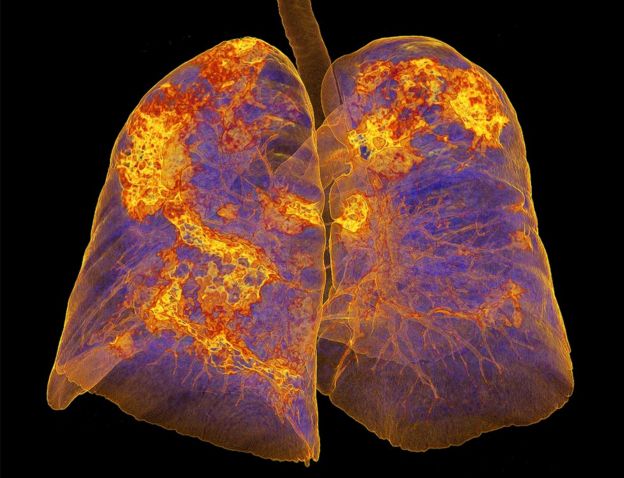
-
With key workers wearing some sort of mask, how are deaf people who lip-read supposed to understand what is being said? From Margaret Roll in Clevedon
Wearing masks has become commonplace not just in hospitals but also among the general public.
It presents major challenges for some deaf people who rely on lip-reading to communicate, but who also need to stay safe from catching the virus, especially if in a hospital setting.
The charity Action on Hearing Loss says there are some clinically approved see-through covered face masks that help enable lip-reading. However, they do not provide enough protection against aerosols spread by coronavirus, and wouldn’t be right for health and social care workers to use during this pandemic.
They say it might be worth using a small whiteboard to communicate. There are also some subtitling or captioning apps that may provide some help.
Protecting myself and others
Your questions
Skip Protecting myself and others-
Is a scarf as a mouth covering enough for public transport? From Rachel in Exeter

BBC News Health team
Yes. According to the advice from Public Health England, a scarf or a bandana tied around your head is fine.
The important thing is that it covers both your mouth and your nose – and that you can breathe easily.
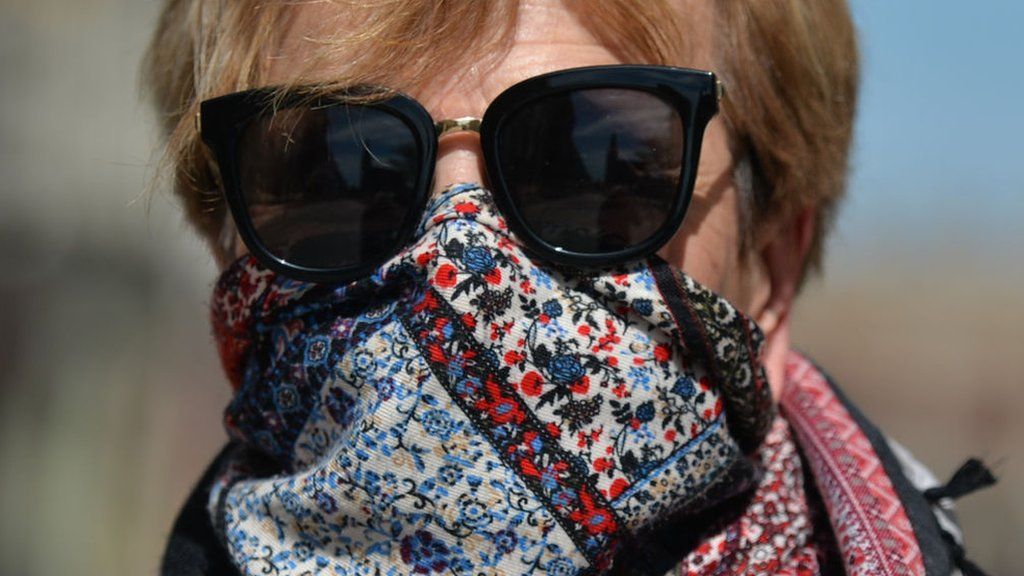
Whether you are wearing a scarf or a homemade mask, the advice is that you should continue to maintain other hygiene measures. So wash your hands, or use hand sanitiser before you put your face covering on and off, and don’t touch your eyes, nose or mouth at all.
Wash the face coverings after each time you use them (for this reason it might be worth avoiding textiles which need special care, such as wool or silk) and keep the used face coverings in a plastic bag until you can wash them.
-
Why are governments going to such extreme measures to combat coronavirus when flu appears to be more deadly? from Lorraine Smith in Harlow

James Gallagher Health correspondent
Quarantining cities and telling people to stay at home may seem extreme, but the alternative is to let the virus spread unrestrained.
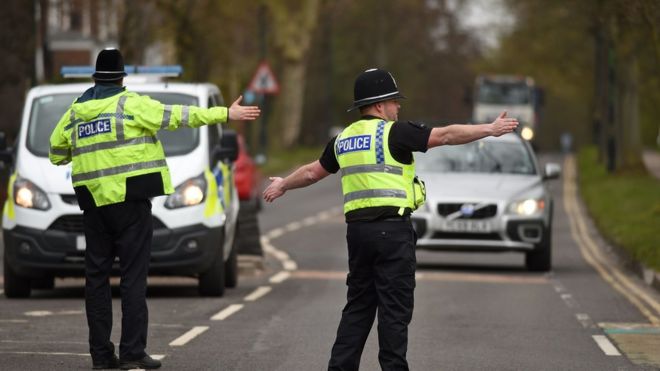
There is no vaccine for this new virus, as there is for flu, which makes elderly people and those with underlying health conditions very vulnerable to its effects.
-
What should I do if someone I live with is self-isolating? from Graham Wright in London

BBC News Health team
If you’re living with someone who’s self-isolating, you should keep all contact to a minimum and, if possible, not be in the same room together.
The person self-isolating should stay in a well-ventilated room with a window that can be opened, and keep away from other people in the house.
If you live with someone who has symptoms, you'll also need to self-isolate for 14 days from the day their symptoms started - this is how long it can take for symptoms to appear.
If you get symptoms, self-isolate for seven days from when your symptoms start, even if it means you're self-isolating for longer than 14 days. If you do not get symptoms, you can stop self-isolating after 14 days.
-
Should people stop having sex? from Martha Menschel in Las Vegas
If you live with your partner, they count as being part of your household. If neither of you is showing coronavirus symptoms and you are already in close contact, having sex won't increase the likelihood of you catching the virus from one another. If one person does have symptoms, they should be self-isolating in a separate room.
Using contraception such as condoms won't alter your risk of catching the virus, as having sex will bring you into close physical contact anyway.
"If you are going to touch each other's genitals it's likely that you will potentially be kissing at the same time - and we know the virus is passed through saliva," Dr Alex George told the BBC's Newsbeat.
"Essentially, any possibility of transfer of coronavirus - from your mouth to your hands, to genitals, to someone else's nose or mouth - increases the risk of passing on coronavirus."
-
How are there still so many new cases of coronavirus occurring during the lockdown? Is it known if it is from people not observing the rules? From Susan Pugsley in Sanford
It’s actually difficult to know how many new cases of coronavirus there have been during the lockdown, because until recently, there has been very little testing of the population as a whole (it was mostly just those in hospital and some NHS and care staff who were being tested).
There is also a lag effect with the figures. It takes time for the effects of social distancing to be seen in the daily figures for cases, hospitalisations and then deaths - around three weeks at least - so it may appear as if there are more cases than there currently are. It’s true that some people have been ignoring the rules regarding lockdown. But police chiefs say that compliance is still holding up.
What we do know is that confirmed daily cases of the virus have been on a downward trend since early April, and the rate of infection has dropped significantly. There’s also been a fall in the number of new people being hospitalised, or dying from the virus.
Where there does seem to be a steady rise in the number of cases is in the UK’s care homes. Latest figures suggest that a third of all coronavirus deaths in England and Wales - and nearly half of those in Scotland and Northern Ireland - take place there.
-
How will we know the difference between a genuine contact tracer and a potential scammer? from James Wilson in Nuneaton
Me and my family
Your questions
Skip Me and my family-
I am five months pregnant and want to understand the risk to the baby if I get infected? from a BBC website reader

James Gallagher Health correspondent
Pregnant women are being advised by the UK government to stay at home and keep contact with others to a minimum. However, they should attend antenatal clinics as normal.
There is no evidence to suggest that pregnant women are more likely to get coronavirus. But, for a small number of women, being pregnant may change the way their body deals with a severe viral infection.
The government’s chief medical adviser says this is a precautionary measure until scientists find out more about the virus and that "infections and pregnancy are not a good combination in general”.
-
I am breastfeeding my five-month-old baby - what should I do if I get coronavirus? from Maeve McGoldrick

James Gallagher Health correspondent
Mothers pass on protection from infection to their babies through their breast milk.
If your body is producing antibodies to fight the infection, these would be passed on through breastfeeding.
Breastfeeding mums should follow the same advice as anyone else over reducing risk - cover your mouth when you sneeze and cough, throw away used tissues straight away and wash hands frequently, while trying to avoid touching your eyes, nose or mouth with unwashed hands.
-
Is it possible to catch coronavirus from a pet dog or cat? from Javed
This is highly unlikely to happen, according to scientists and vets.
While there are rare cases where an animal has caught the virus from a human, there is no evidence that humans can catch the virus from animals.
It is possible that a pet's fur could become contaminated if an infected person has previously touched or stroked the animal.
But even without the threat of coronavirus, you should always wash your hands with soap and water after handling an animal or its lead, and avoid touching your nose and mouth.
-
What is the risk to children? from Louise in London

BBC News Health team
In general, children appear to be relatively unaffected by coronavirus, according to data from China and other countries.
This may be because they are able to shake off the infection or have no symptoms or only very mild ones similar to a cold.
However, children with underlying lung problems, such as asthma, may have to be more careful.
All schools in the UK are currently closed, except for vulnerable pupils or children of key workers.
Leaving the house
Your questions
Skip Leaving the house-
My children live with their mother, but visit me. I live about 190 miles from them. Is it legitimate travel for me to drive to collect them? from Mark in Swansea
Yes it is.
Government guidance on staying at home says: "Where parents do not live in the same household, children under 18 can be moved between their parents' homes."
If neither parent nor child is showing symptoms of the virus or self-isolating, children of separated parents are still allowed to stay with either of them.
However, the Family Division of the High Court has said that, in England and Wales, if one parent is worried that moving their child would be going against public health advice, they may "vary the arrangement to one that they consider to be safe", even if the other parent does not agree.
Where this is the case, family courts will expect parents to allow contact by video chat or phone.
-
Can I visit Germany for a three-day business trip? From Kevin in Stockport
It depends on a number of factors.
"Typical" business trips to Germany are not currently permitted except to workers carrying out "essential functions" such as healthcare. A certificate from your employer to that effect will be needed if that is the case.
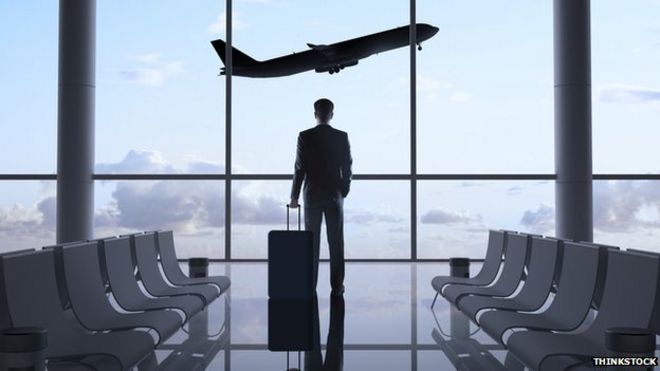
With the introduction of quarantine restrictions at UK borders, returning to the UK is not as straightforward.
Anyone entering the UK has to self-isolate for 14 days after arrival. There are a number of exemptions to this rule, including UK residents who ordinarily travel overseas at least once a week for work.
My finances
Your questions
Skip My finances-
Will lenders allow people with mortgages to delay payments during the outbreak? from Clare Waters

Simon Gompertz Personal finance correspondent
People affected by coronavirus will be able to delay their mortgage payments for up to three months.
It is important to bear in mind that any interest and capital repayments which are missed, will be added to the mortgage balance.
This means that any future monthly mortgage bills are likely to be slightly higher.
-
How do you get gas and electricity if you are on a pre-payment meter and can't get to a post office to top it up? from David E P Dennis

Simon Gompertz Personal finance correspondent
Energy companies have promised to help you if you have a pre-payment meter. So you may be able to authorise a friend to top up your energy card for you.
You could also ask your supplier to send you a card by post which is already topped up. The government says that if it's urgent the supplier should be able to add credit directly to your account. You should be able to top up online as well.
And you will have to pay back any credit your supplier gives you. So you should contact them to ask about when and how to do this.
-
What should I do as I have not received a refund for a cancelled flight? From Susan in Offley
If your flight is cancelled, you are entitled to a full refund to the original form of payment within seven days, although many airlines are struggling to meet that deadline.
Ryanair, for example, says customers who want a cash refund will receive it ''in due course'' as it is dealing with a much higher volume of requests than usual, with fewer staff.
Many airlines are trying to avoid giving refunds and are offering vouchers for another flight or a free re-booking instead.
If the airline later folds, the voucher will probably become invalid. And any rebooking could affect the terms of your travel insurance.
Work issues
Your questions
Skip Work issues-
I am a self-employed music teacher. If I cannot work, will the government still help the self-employed financially until October? from Jess in Essex
If you’re self-employed, you could be eligible for a taxable grant of up to 80% of your trading profits up to a cap of £2,500 per month, if your livelihood has been affected by the pandemic, and you meet certain conditions.
You must have been self-employed since at least the start of April 2019, and have a trading profit of less than £50,000 a year on average.
Initially, this was a one-off payment designed to cover March, April and May, up to a maximum total of £7,500. In August, applications will open for a "second and final" payment covering 70% of profits, up to a cap of £2,190 a month for another three months (£6,570 in total).
The scheme - which is called the Coronavirus Self-Employment Income Support Scheme - is open to any claimant who makes more than half of their income from self-employment.
-
My company wants me to return to work within the lockdown period. Is this legal? From Jim Bridgeman in Kettering
The government has said that everyone should work from home if possible, and only go into a workplace if their job "absolutely cannot be done from home".
Your employer has a duty to protect your health and safety. If you or a member of your household have an underlying health condition which increases vulnerability to coronavirus, you could argue that you have a right not to come into work.
If you still do not want to go in, you could ask to take time off as holiday or unexpected leave, but your employer does not have to agree to this.
An employer could bring disciplinary action against an employee who they consider to be refusing to work without a good reason.
-
I'm self-employed. Can I claim benefits if I can't work due to the virus? from Mark Gribby in Nottingham

Simon Gompertz Personal finance correspondent
Self-employed people who have symptoms or have been told to self-isolate may apply for two benefits - universal credit or employment and support allowance.
Normally, you would be eligible after four days of being ill. However, the government has responded to the spread of coronavirus by saying that companies will temporarily pay SSP from the first day off.
But charities are worried that there is still a five-week delay before universal credit is paid.
-
Who is eligible for universal credit? from Mario in London

Moneybox team BBC Radio 4
Anyone aged 18 or above can apply for universal credit if they live in the UK and are on a low income or out of work.
Students in full-time education aren’t usually eligible for universal credit, but they can make a claim if they do not have any parental support, are responsible for a child or are in a couple with a partner who is eligible for universal credit.
People aged 16 or 17 can also apply for universal credit if they do not have any parental support, are responsible for a child, caring for a disabled person or cannot work.
You can use the government's benefits calculator to find out how much you may be entitled to.
-
If you have to self-isolate will you only get statutory sick pay, or will your employer pay your salary? from Laura White in Herefordshire
The government advises that people who are self-isolating should work from home wherever possible and be paid as normal.
If they can’t work from home, employers must ensure any self-isolating employee gets sick pay or is allowed to use paid leave days if they prefer.
Employees in self-isolation are entitled to Statutory Sick Pay for every day they are in isolation, worth £95.85 per week, as long as they qualify.
However, employers can choose to pay staff their full wages during this period if they wish.
Back to school
Your questions
Skip Back to school-
What happened to the plan to provide all vulnerable school students with a laptop? from David in Witham, Essex
The government says that this plan is still on course.
At the beginning of lockdown, the government promised to provide laptops and tablets for disadvantaged children and young people, so that they would not fall behind in online learning organised by their schools.
Education Secretary Gavin Williamson told MPs on the Education Select Committee that 200,000 laptops would be delivered, some at the end of May, but most of them in June.
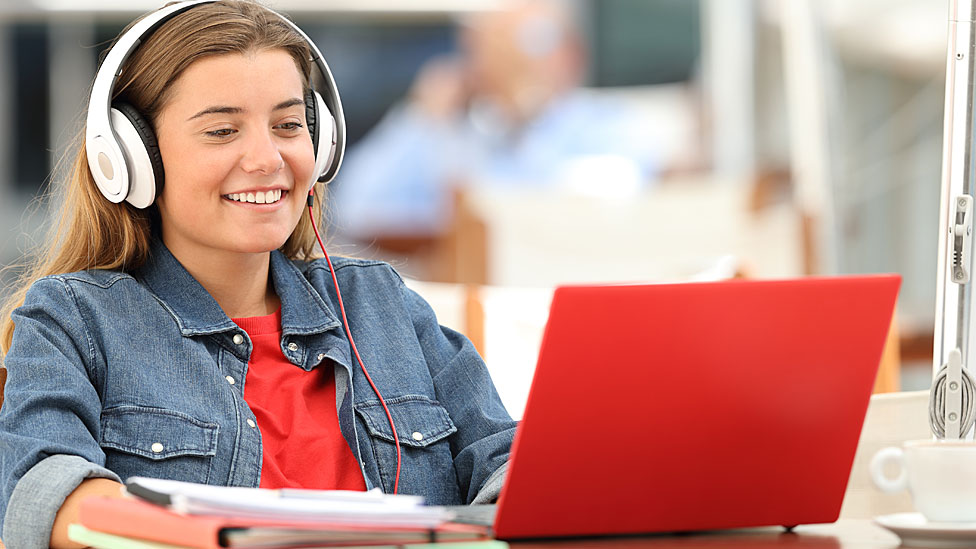
On 9 June Mr Williamson told the House of Commons that 100,000 laptops had been distributed, prioritising children who have social workers, and that the government was on schedule to distribute all the computers over the coming month.
However, he faced criticism from the opposition that the roll-out was taking too long. Labour MP Meg Hillier said that it was “already late for vulnerable pupils, and with no clear plan about catch-up”.
Separate schemes to provide vulnerable children and adults with laptops have been announced in Northern Ireland, Wales and Scotland.
-
Social distancing is very difficult in schools. I'm a primary school teacher - shouldn't I be wearing a mask? from Liezel
Although the government has changed its advice on the use of face coverings in public places, it still recommends that face masks or face coverings should not be worn in schools.
It adds that face coverings should not be worn in any circumstances by those who are not able to handle them properly (for example, small children or those with special educational needs or disabilities), as they may “inadvertently increase the risk of transmission”.
Trish Greenhalgh, professor of primary care health sciences at the University of Oxford, told the Times Educational Supplement that face coverings could also have a bad effect on the mental health of some children: “If compulsory masking is going to tip some kids into a bad space after weeks of stressful lockdown, we need to balance that risk with the potential benefits.”
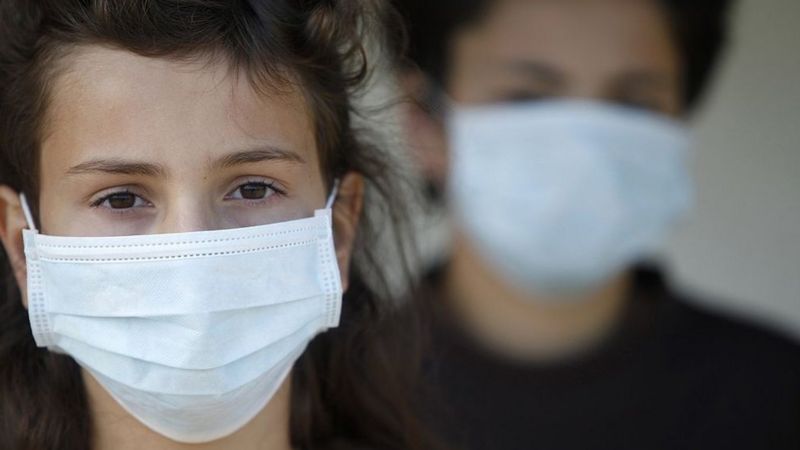
Meanwhile, other countries have taken different approaches when reopening schools. In France, for example, face masks are compulsory for teachers and pupils aged 11 and over, but they are not worn in Denmark.
-
Will schools stay open during the school summer holidays? from Nic in Burgess Hill, West Sussex
There are no current plans to open schools for most pupils during the summer holidays, but the situation varies across the UK.
In England, some Nursery, Reception, Year 1 and Year 6 children have gone back, but the government has dropped plans for all primary school pupils to return before the summer.
Similarly, some Year 10 and Year 12 students in England will go back from 15 June, but the government has confirmed that secondary schools may not fully reopen until September "at the earliest".
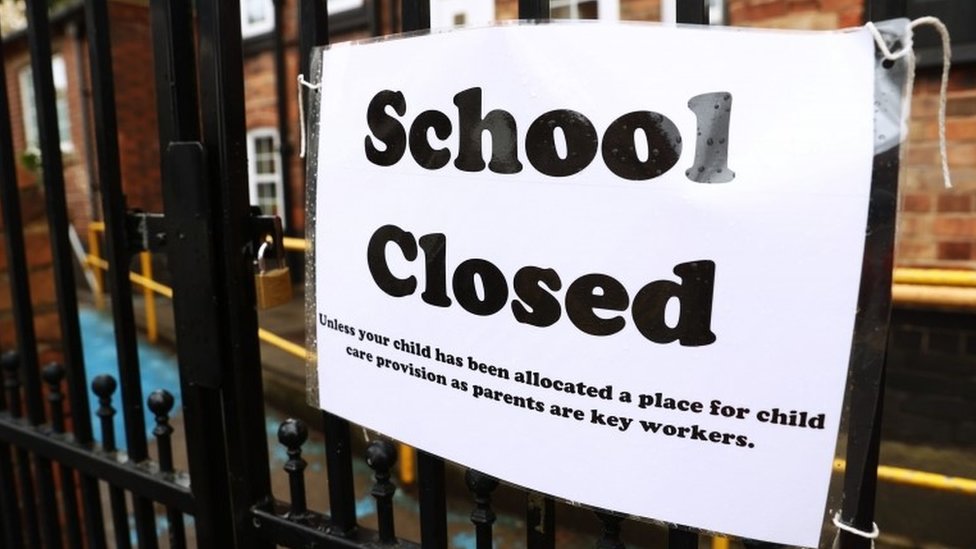
Schools in Wales will reopen from 29 June for all age groups, but only a third of pupils will be in class at any one time. The summer term has been extended by a week to 27 July, and the autumn half-term holiday will be stretched to two weeks.
Schools in Scotland and Northern Ireland won’t be returning until after the summer holidays in August.
Across the UK, some vulnerable pupils and the children of key workers have been in school throughout the crisis, including during the Easter holidays, but it is not yet clear whether that provision will continue over the summer break.
Student issues
Your questions
Skip Student issues-
I am supposed to be starting university in September. Is there any point in me going this year or shall I defer until next year? from Danny in Scunthorpe
Ultimately this is a personal decision, but it echoes what a lot of students are thinking right now.
A recent survey of students applying for undergraduate places found that more than one in five were considering deferring for a year if universities were not going to operate normally.
University campuses have been closed this term by the Covid-19 outbreak and there is no guarantee how far they will open in the autumn. The University of Cambridge has said it will have no face-to-face lectures in the next academic year, and the University of Manchester has said that, to begin with, its lectures will be taking place online only. Other universities are considering a delay to the start of the academic year.
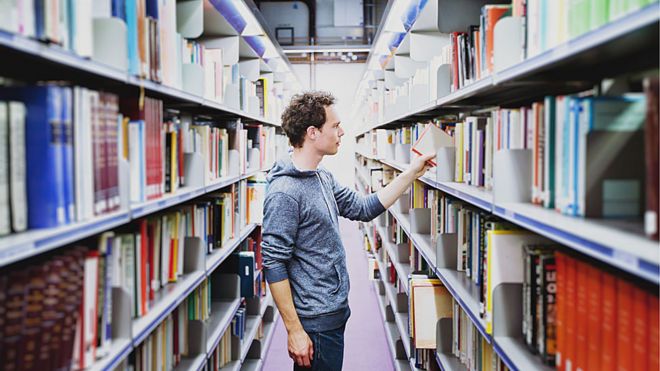
Before you make a firm choice, the higher education watchdog, Office for Students, says your university should give you “absolute clarity” on whether courses will be online, on-campus or a mixture. And if the information isn't available next month it must be provided before clearing in August.
Once you have all the information, you need to weigh up what's important to you. Bear in mind the universities minister says you'll have to pay full fees even if you're learning online - but if you are offered distance learning you could potentially save on accommodation and other living expenses.
Also, if your university can offer a campus experience, access to facilities like libraries, bars and cafes is likely to be limited - so student life could be very different to normal.
-
Can university students get their tuition fee refunded for disruptions to teaching because of Covid-19? from Sophie in Liverpool

Moneybox team BBC Radio 4
The Department for Education has indicated that it is possible for students to get their fees back.
In a statement, it said that if universities are “unable to facilitate adequate online tuition then it would be unacceptable for students to be charged for any additional terms”.
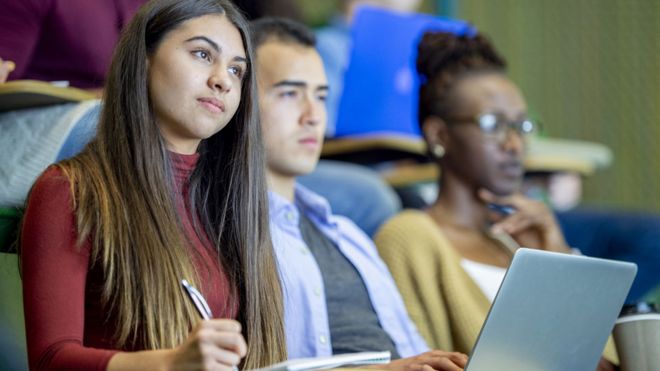
To claim a refund, students first need to complain directly to their university. If that is unsuccessful then students in England or Wales can lodge an appeal with the Office of the Independent Adjudicator (OIA).
If your university is in Scotland then it’s the SPSO (Scottish Public Services Ombudsman) and for Northern Ireland, you go to the NIPSO (Northern Ireland Public Services Ombudsman). Students will need a “completions procedure form” from their university in order to file an appeal.
-
Can you cancel your student property lease early - and if so, how? From Honor in Edinburgh

Moneybox team BBC Radio 4
Most students have gone home to self-isolate, leaving their student properties empty but they still have to pay rent.
If you’re worried about paying rent for an empty student property, first of all check your tenancy agreement. Some contracts will have a “break clause” which will allow you to cancel your lease early if you give your landlord enough notice.
If you don’t have a “break clause”, you can always speak to your landlord and ask for a “reduced payment plan”. This could mean you pay less rent each month.
Life after lockdown
Your questions
Skip Life after lockdown-
Why are gyms, leisure centres and other fitness facilities being excluded from this round of restrictions when their links to improved physical and mental health are so obvious? from James Shillaker in Burgess Hill

Nick Triggle Health correspondent
It is a good question. Indoor gyms are obviously good for health and wellbeing, but there’s concern Covid-19 transmission will be more difficult to control in them because of the physical exertion by gym-goers, the damp conditions in changing rooms and the fact that social distancing is generally less easy.
The government hopes indoor gyms, swimming pools and spas - so called “close proximity” venues - can reopen in England later in July. But PM Boris Johnson says outdoor gyms and playgrounds can reopen from Saturday 4 July.
In Northern Ireland, indoor gyms will reopen on 10 July. In Scotland, gyms will only reopen in Phase Three of the country’s Covid route map – which is not expected until mid-August. No date has been set for the reopening of indoor gyms in Wales.
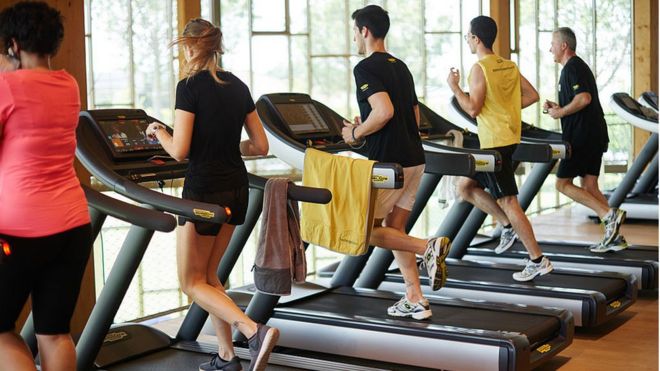
-
How many households can share a self-catered house? And are they allowed to use a shared swimming pool and hot tub? from Joanna McCaul in Rickmansworth, London
In England, 4 July marks the date when two households of any size can meet up indoors. This can be at one another’s home, or else in shared accommodation away from home.
In addition, 4 July is also the day from which people in England can start to take holidays away from home, at hotels, B&Bs and self-catering accommodation.
Government guidance states that the holidaymakers should “take particular care to maintain excellent hygiene - washing hands and surfaces - and avoid using shared facilities like bathrooms wherever possible”.
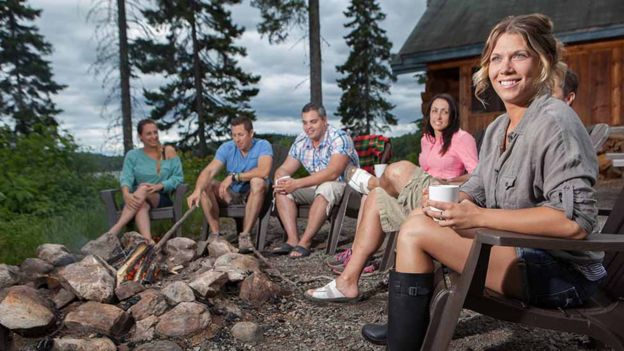
It also advises that you should not share private swimming pools with anyone outside your household or support bubble, nor should you share a paddling pool or any sort of garden equipment, which would appear to include hot tubs.
Self-catering holiday accommodation is now open in Scotland and Northern Ireland but two households are not allowed to share. Holidaying in Scotland and Wales is not yet allowed but that is expected to change in July.
-
Can I travel to and stay in my second home? It's not a holiday home, I live in the Midlands, but work in the North East during the week. Travelling is not an option as it would mean an eight or nine-hour round trip every day. From Mark Dunn in Cannock
Yes - from 4 July, you can stay in your second home in England for any reason.
Going on your own for work is fine, but if you were going for any other reason you could stay there in groups of up to two households (your support bubble counts as one household), as long as you maintain social distance from anyone you do not live with, or who is not in your support bubble.
From 29 June in Scotland, you can travel to a second home to check it is secure and in good condition. You should only stay there for as long as is reasonably necessary to make these checks, and you can't stay there for leisure. You can't visit a second home in Wales, but holiday accommodation in Northern Ireland is reopening from 26 June.
-
My daughter is a driving instructor. When will she be able to start teaching her students again? from Valerie in Haslemere
The government has now announced that driving lessons and theory tests will be able to resume in England, Scotland and Wales from 4 July. Driving tests will resume from 22 July.
Other than emergency training and tests for critical workers, no driving instruction or driving tests have been taking place since the beginning of lockdown. They have not been able to restart because the risk of transmitting the virus in a car is higher.
In Northern Ireland, where driving instruction is the responsibility of the Driver and Vehicle Agency, tests and lessons remain suspended.
-
The number of new cases may have fallen to pre-lockdown levels. But the virus is still equally contagious and has the potential to spread exponentially - just as it did before lockdown. So what's changed? from Tomas René in Hastings

Nick Triggle Health correspondent
Lockdown is essentially a blunt tool. With the testing and tracing system now in place, the idea is to be much more forensic in trying to contain the virus.
The government now has the capacity to carry out 200,000 tests a day - in March it was only a few thousand. We now have an extensive network of contact tracers.
On top of this, social distancing continues and lots of measures - like face coverings, and screens in shops - will limit the spread of the virus. So the picture is significantly different from how it was in March.
-
Will churches be able to reopen for services from 4 July? from Danny Smith in St Albans
Places of worship in England - which have been open for private prayer since 13 June - will be open for services from 4 July, including weddings with up to 30 guests. But not all are likely to open immediately.
The Church of England and the Roman Catholic Church both say they will publish guidance shortly on how services will be conducted while maintaining social distancing and avoiding unnecessary risk.
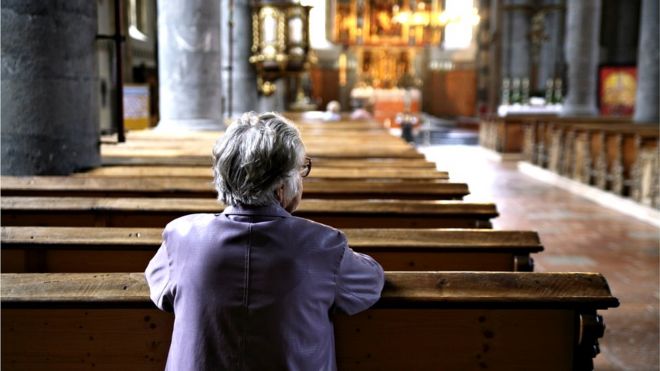
Jewish reaction - both liberal and orthodox - has been cautious. The chief rabbi said that reopening was not a single event, “but rather a cautious, phased process” that would take place over the course of months.
The Muslim Council of Britain (MCB) has issued guidance for the reopening of mosques, but has warned that it will be a gradual process - “mosque leaders must carefully plan and decide when they feel they can put the required controls in place to reopen in the safest way possible,” said Harun Khan, Secretary General of the MCB.
-
If it is safe enough to go to the cinema why are schools still not allowed to take more than 25% of any year group in? from Lydia in Bath
The problem for schools is one of social distancing and space.
Secondary schools have begun reopening in England, but only a quarter of pupils from two year groups are going into school at any one time - and they’re meant to keep 2m apart.
In English primary schools, children are not expected to maintain social distance - they’re organised in bubbles of 15, and these bubbles are kept separate. This also places limits on the number of children who can be in school, since this arrangement generally requires two classrooms where there was only one before.
From 4 July, the 2m social distancing rule will be relaxed to 1m in England, but it’s probably too late for these changes to feed through to bigger class sizes before school breaks up a few weeks later.
However, the government has said it intended to bring all children back to full-time education in September. Guidance on safety measures is due to be published in the next couple of weeks.
Schools in Wales - where the 2m distancing rule remains in place - are due to reopen on 29 June. About a third of pupils will be allowed back at any one time. Schools in Scotland and Northern Ireland are not opening until August at the earliest.
-
When will UK prisons be open again for social visits? from Hazel
The Ministry of Justice has not given a date for the resumption of visits. It says the measures are temporary, and that the restrictions will be reviewed at some point, taking into account public health advice.
Prison visits were suspended at the beginning of the lockdown in March. Since then, relatives and friends have had the option of writing to inmates, or sending an email to the prison, which is then printed out and passed on.

As a temporary measure, secure phone handsets have been given to pre-approved prisoners at 55 prisons, allowing them to speak to a small number of pre-authorised contacts.
The Church of England says that it does not expect to resume normal services before the end of the year, although the approach would vary on a regional basis.
The Rt Rev Sarah Mullally, who’s leading the Church’s plans for reopening, says questions remain about various aspects of worship including sharing hymn books, distancing within the church buildings, and Holy Communion.
-
What are my chances of getting a job in lockdown/when lockdown is over? from Jess in Essex

Moneybox team BBC Radio 4
Research conducted by the Resolution Foundation has found that the coronavirus pandemic could increase youth unemployment by 600,000 this year.
If you’re worried about finding a job you can head to the National Careers Service for advice on how to find job vacancies.
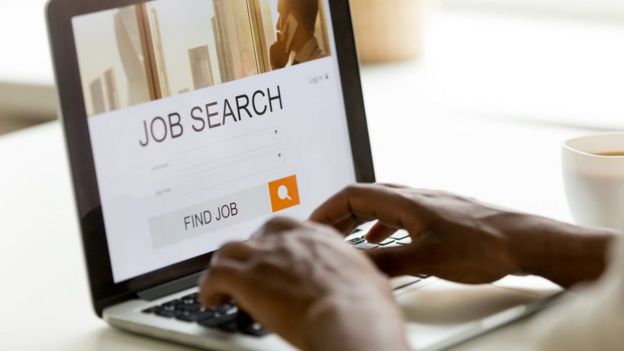
You can also search online for virtual job fairs. This could help you explore different job opportunities and connect with potential employers directly from home.
Experts recommend using lockdown to refresh your CV and also look for any online training opportunities which might put you in a better position when you eventually apply for a job.
Testing, tracking and tracing
Your questions
Skip Testing, tracking and tracing-
How will people who don't have a mobile phone be able to submit that they have symptoms? From Lorna Miller in Liverpool
People experiencing symptoms will be asked to report this as soon as possible and order a test.
You can either do this via the NHS website or if you do not have access to the internet you can dial 119 in England, Wales and Northern Ireland or 0800 028 2816 in Scotland.
If you have been exposed to someone who has tested positive you may be contacted by text message, email or phone.
The only part of the process which will need a smartphone is the contact tracing app. The government now says this is not likely to be working before the winter.
-
If an online grocery delivery driver tests positive for Covid-19, would they need to let the Test and Trace service know every customer they’ve delivered to because they will have handled the food or bags? From Jan in Wiltshire
No. The tracers will be interested in anybody who has had close contact with a person who has tested positive.
Close contact means being less than 1m (3ft) from somebody at any point, or between 1m and 2m away for more than 15 minutes.
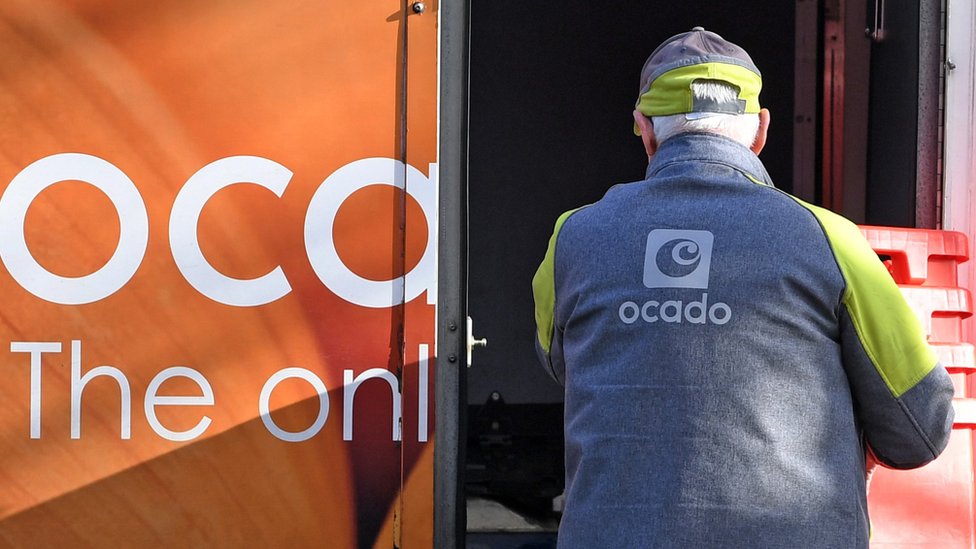
You shouldn't be that close to a delivery driver.
There is a small potential risk of contamination if the food or packaging has been handled by someone who has tested positive.
Online shopping customers are therefore generally advised to leave packaged goods for 72 hours if possible before handling them, or to spray and wipe plastic or glass containers with diluted bleach.
Unwrapped fresh goods should be washed under running water and left to dry.
Quarantine
Your questions
Skip Quarantine-
Can I travel to Ireland and then onto another country, then back to the UK via Ireland to avoid the quarantine? from Chris McCann in Sandhurst
The short answer to this is no.
It's true that you don’t have to go into quarantine if you’re returning to the UK from what’s known as the Common Travel Area (CTA) - Ireland, Isle of Man and the Channel Islands.
When the government first announced its plans, there was some speculation that to avoid quarantine, travellers from other countries would be able to fly into an airport in the CTA, and then on to the UK and so avoid having to self-isolate.
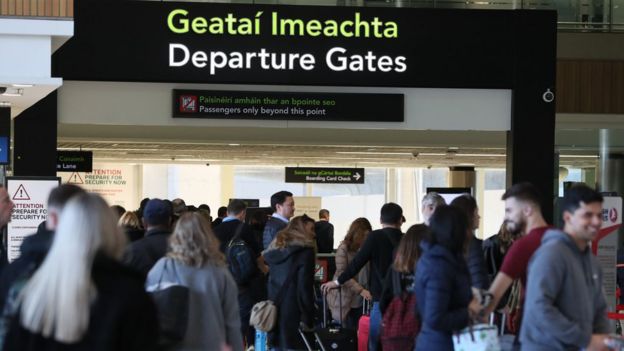
However, this loophole (termed by some the "Dublin dodge") has now been closed by the government. Travellers will only be exempt from quarantine if they have been in the CTA for 14 days or more.
You will have to show proof of when you entered the CTA, and how long you have spent there - such as a boarding pass or itinerary - when you enter the UK.
-
Do key workers have to quarantine? From Mateusz in London
Key workers will not necessarily be exempt.
The government has published a detailed list of who will not need to follow the quarantine rules. Among others, it includes road haulage and freight workers, medical and care professionals providing essential health care, some seasonal agricultural workers, Eurostar and Eurotunnel employees, pilots and aircrew and people working to maintain key infrastructure such as the railways.
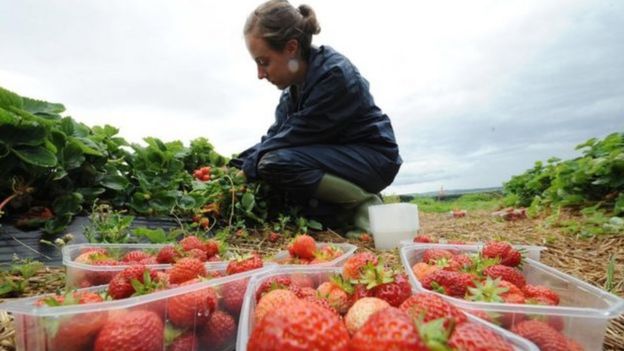
It also depends where you are going in the UK - some employees will be exempt from quarantine in England and Wales, but not Scotland.
The government guidance details what you’ll need to show when you enter the UK to prove you are exempt. This differs between categories but typically includes proof of your name and address, the name of your employer and what work you’ll be doing.
-
I will be back in the UK after 8 June, therefore I will have to quarantine. Will my flatmates have to quarantine as well because of me? From Matteo in London
Unless your flatmates were travelling with you, they do not need to self-isolate or quarantine with you.
However, you must avoid contact with them and minimise the time you spend in shared spaces like kitchens, bathrooms and sitting areas.
You should stay in a well-ventilated room with a window to the outside that can be opened, separate from your flatmates, and if you can, you should use a separate bathroom from them. If you do need to share these facilities, regular cleaning will be required after each person has used them.
Make sure you use separate towels from the other people in your house, both for bathing and showering, and for washing your hands.
-
If I have to quarantine after a holiday and can’t work from home will I get paid? From Emma in Portishead, Bristol
Not necessarily.
If you have returned from holiday abroad and have to self-isolate in quarantine, you will not automatically qualify for Statutory Sick Pay (SSP), so it's possible you might have to take the extra time off as annual leave, or else as unpaid leave.
The Department of Work and Pensions says that anyone planning to travel should do so in the knowledge that they will be required to self-isolate on their return.
It adds that employers and staff should discuss and agree any arrangements in advance, and urges employers to take socially responsible decisions.
Meanwhile, the Foreign & Commonwealth Office is still advising UK nationals against taking all but essential international travel.
What do I need to know about the coronavirus?
What questions do you have about coronavirus? Do you want to ask it on BBC News? Get in touch and we may ask you to send us a video of you asking your question.
In some cases, your question will be published, displaying your name, age and location as you provide it, unless you state otherwise. Your contact details will never be published. Please ensure you have read our terms & conditions and privacy policy.
Use this form to ask your question:
If you are reading this and can't see the form above you will need to visit the mobile version of the BBC website to submit your question or send them via email to YourQuestions@bbc.co.uk. Please include your name, age and location with any question you send in.
From Chip War To Cloud War: The Next Frontier In Global Tech Competition
The global chip war, characterized by intense competition among nations and corporations for supremacy in semiconductor ... Read more
The High Stakes Of Tech Regulation: Security Risks And Market Dynamics
The influence of tech giants in the global economy continues to grow, raising crucial questions about how to balance sec... Read more
The Tyranny Of Instagram Interiors: Why It's Time To Break Free From Algorithm-Driven Aesthetics
Instagram has become a dominant force in shaping interior design trends, offering a seemingly endless stream of inspirat... Read more
The Data Crunch In AI: Strategies For Sustainability
Exploring solutions to the imminent exhaustion of internet data for AI training.As the artificial intelligence (AI) indu... Read more
Google Abandons Four-Year Effort To Remove Cookies From Chrome Browser
After four years of dedicated effort, Google has decided to abandon its plan to remove third-party cookies from its Chro... Read more
LinkedIn Embraces AI And Gamification To Drive User Engagement And Revenue
In an effort to tackle slowing revenue growth and enhance user engagement, LinkedIn is turning to artificial intelligenc... Read more

